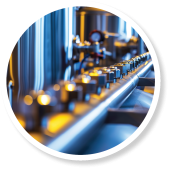https://doi.org/10.15255/KUI.2023.047
Published: Kem. Ind. 73 (3-4) (2024) 129–138
Paper reference number: KUI-47/2023
Paper type: Original scientific paper
Download paper:  PDF
PDF

Indoor Pretreatment of Biowaste Using the Bokashi Method
N. Vukojević Medvidović, M. Buljac, E. Dadić, Z. Jukić, J. Radić and S. Perinović Jozić
Abstract
Approximately one-third of municipal solid waste is biodegradable waste, necessitating its urgent processing into compost or biogas. Indoor composting of biowaste has recently received increased attention due to its economic, environmental, and social benefits, offering a significant contribution to sustainable waste management and circular economy. Instead of disposing of biowaste in landfills, compost is produced as a useful organic soil improver, fertiliser or bio-based product. This study analyses the physicochemical parameters of biowaste and the obtained pre-compost during the Bokashi treatment, considering the effects of different inoculants, occasional mixing of biowaste, and exposure to air. The pretreatment of biowaste was compared based on pH, electrical conductivity, temperature and height of the compost mass, moisture, dry matter, volatile matter, carbon and nitrogen content, and C/N ratio. Collected leakages were analysed for volume, pH, electrical conductivity, and turbidity. In addition, the obtained pre-composts underwent further maturation in two soil types, and the same physicochemical parameters were monitored. Finally, FTIR spectroscopy was employed to analyse the initial biowaste, final pre-compost masses, and the collected leakages. There is no significant difference between the pre-composts and also between the leakages. The results indicate that Bokashi treatment of biowaste with Inoculant 1 efficiently yielded a higher carbon and nitrogen content in the final pre-compost, and produced a lower volume of compost leakage. This paper highlights the Bokashi method’s efficiency in facilitating indoor biowaste treatment.

This work is licensed under a Creative Commons Attribution 4.0 International License
Keywords
indoor composting, inoculant, fermentation, biowaste, pre-compost maturation









